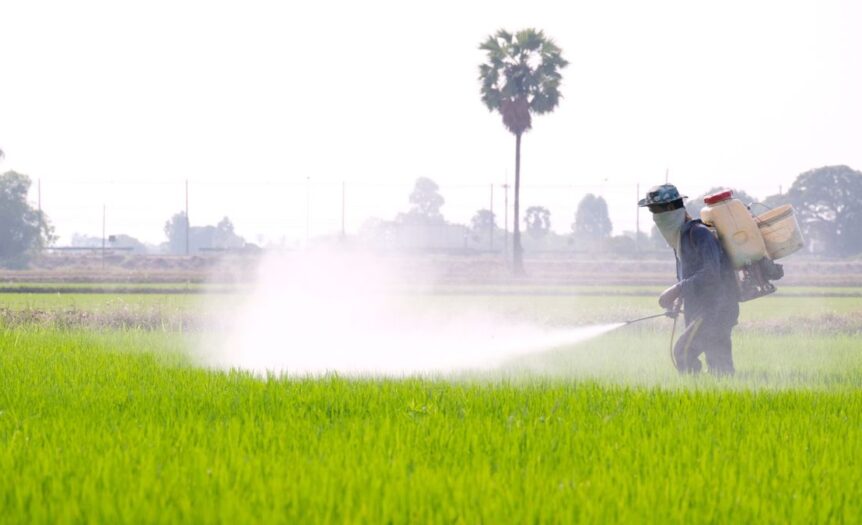Water is essential to life, and it’s crucial to keep it clean. Unfortunately, water isn’t always clean, and harmful chemicals can make it lethal.
The threat of waterborne diseases is too real, and millions of people worldwide suffer from health problems caused by contaminated water. Let’s explore some common chemicals that cause waterborne diseases and how to protect ourselves.
Pesticides and Herbicides
Farmers use pesticides and herbicides to protect their crops from pests and weeds. These chemicals can enter the water supply through runoff and cause serious health hazards. Consuming water contaminated with pesticides can lead to cancer, birth defects, and reproductive problems.
Chlorine
Chlorine is a common additive that treats water and makes it safe to drink. However, excessive chlorine can lead to skin irritation and respiratory problems. Long-term exposure to chlorine can increase the risk of rectal and bladder cancers.
Lead
Lead is a naturally occurring element that can enter the water supply through corroded pipes and fixtures. Regular exposure to lead can lead to serious health problems, including kidney damage, developmental delays, and learning disabilities. Children and pregnant women are especially vulnerable to lead poisoning.
Mercury
Mercury is a natural element that often enters the environment through mining and industrial processes. When it enters the water supply, it can cause irreversible brain damage and developmental delays in young children. Pregnant women who consume mercury-contaminated water can also pass it on to their unborn babies.
Arsenic
Arsenic is a highly toxic element that occurs naturally in some groundwater sources. Consumption of water contaminated with arsenic can lead to skin lesions, bladder, lung, and liver cancer, and other serious health problems. Arsenic contamination is widespread in many developing countries and affects millions of people.
Keeping your water supply clean and free of these harmful chemicals that can cause waterborne diseases is important. These chemicals are just a few of the common causes of waterborne diseases, and it’s important to be aware of all the dangers to keep yourself and your loved ones safe. Take the necessary steps to ensure that drinking water is free from contamination. These steps include regularly testing your water supply, installing water filters, or switching to bottled water.










 Deering Estate
Deering Estate
 Massage Envy South Miami
Massage Envy South Miami
 Calla Blow Dry
Calla Blow Dry
 My Derma Clinic
My Derma Clinic
 Sushi Maki
Sushi Maki
 Sports Grill
Sports Grill
 The Healthy Kitchen
The Healthy Kitchen
 Golden Rule Seafood
Golden Rule Seafood
 Malanga Cuban Café
Malanga Cuban Café

 Kathleen Ballard
Kathleen Ballard
 Panter, Panter & Sampedro
Panter, Panter & Sampedro
 Vintage Liquors
Vintage Liquors
 The Dog from Ipanema
The Dog from Ipanema
 Rubinstein Family Chiropractic
Rubinstein Family Chiropractic
 Your Pet’s Best
Your Pet’s Best
 Indigo Republic
Indigo Republic




 ATR Luxury Homes
ATR Luxury Homes


 2112 Design Studio
2112 Design Studio
 Hamilton Fox & Company
Hamilton Fox & Company
 Creative Design Services
Creative Design Services
 Best Pest Professionals
Best Pest Professionals
 HD Tree Services
HD Tree Services
 Trinity Air Conditioning Company
Trinity Air Conditioning Company
 Cisca Construction & Development
Cisca Construction & Development
 Mosquito Joe
Mosquito Joe
 Cutler Bay Solar Solutions
Cutler Bay Solar Solutions


 Miami Royal Ballet & Dance
Miami Royal Ballet & Dance
 Christopher Columbus
Christopher Columbus
 Pineview Preschools
Pineview Preschools
 Westminster
Westminster
 Carrollton
Carrollton
 Lil’ Jungle
Lil’ Jungle
 Frost Science Museum
Frost Science Museum
 Palmer Trinity School
Palmer Trinity School
 South Florida Music
South Florida Music
 Pinecrest Orthodontics
Pinecrest Orthodontics
 Dr. Bob Pediatric Dentist
Dr. Bob Pediatric Dentist
 d.pediatrics
d.pediatrics
 South Miami Women’s Health
South Miami Women’s Health

 The Spot Barbershop
The Spot Barbershop
 My Derma Clinic
My Derma Clinic




 Miami Dance Project
Miami Dance Project

 Rubinstein Family Chiropractic
Rubinstein Family Chiropractic
 Indigo Republic
Indigo Republic

 Safes Universe
Safes Universe
 Vintage Liquors
Vintage Liquors
 Evenings Delight
Evenings Delight





 Atchana’s Homegrown Thai
Atchana’s Homegrown Thai
 Baptist Health South Florida
Baptist Health South Florida

 Laser Eye Center of Miami
Laser Eye Center of Miami
 Visiting Angels
Visiting Angels
 OpusCare of South Florida
OpusCare of South Florida

 Your Pet’s Best
Your Pet’s Best





 HD Tree Services
HD Tree Services
 Hamilton Fox & Company
Hamilton Fox & Company


 Creative Design Services
Creative Design Services